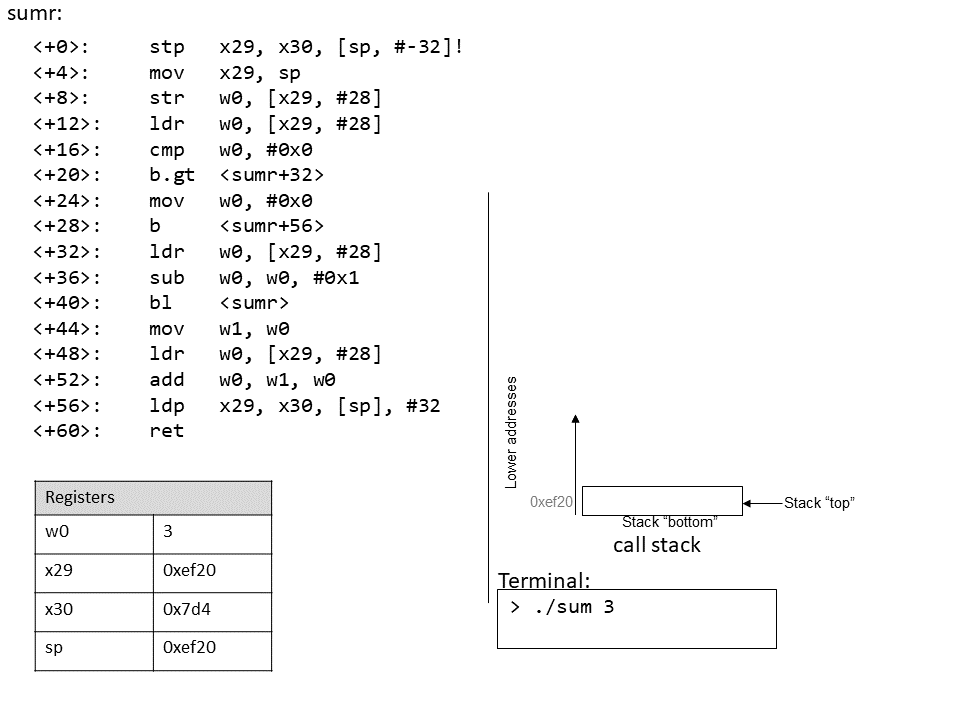9.6. Recursion
Recursive functions are a special class of functions that call themselves (also known as self-referential functions) to compute a value. Like their nonrecursive counterparts, recursive functions create new stack frames for each function call. Unlike standard functions, recursive functions contain function calls to themselves.
Let’s revisit the problem of summing up the set of positive integers from
1 to n. In previous sections, we discussed the sumUp
function to achieve this task. Table 1 shows a related function
called sumDown, which adds the numbers in reverse (n to 1), and its
recursive equivalent:
| Iterative | Recursive |
|---|---|
|
|
The base case in the recursive function sumr accounts for any values of n that are
less than or equal to zero, and the recursive step adds the current value of n to the result
of the function call to sumr with the value n - 1. Compiling sumr
and disassembling it with GDB yields the following assembly code:
Dump of assembler code for function sumr: 0x770 <+0>: stp x29, x30, [sp, #-32]! // sp = sp-32; store x29,x30 on stack 0x774 <+4>: mov x29, sp // x29 = sp (i.e. x29 = top of stack) 0x778 <+8>: str w0, [x29, #28] // store w0 at x29+28 (n) 0x77c <+12>: ldr w0, [x29, #28] // w0 = n 0x780 <+16>: cmp w0, #0x0 // compare n to 0 0x784 <+20>: b.gt 0x790 <sumr+32> // if (n > 0) goto <sumr+32> 0x788 <+24>: mov w0, #0x0 // w0 = 0 0x78c <+28>: b 0x7a8 <sumr+56> // goto <sumr+56> 0x790 <+32>: ldr w0, [x29, #28] // w0 = n 0x794 <+36>: sub w0, w0, #0x1 // w0 = w0 - 1 (i.e. n-1) 0x798 <+40>: bl 0x770 <sumr> // call sumr(n-1) (result) 0x79c <+44>: mov w1, w0 // copy result into register w1 0x7a0 <+48>: ldr w0, [x29, #28] // w0 = n 0x7a4 <+52>: add w0, w1, w0 // w0 = w0 + w1 (i.e n + result) 0x7a8 <+56>: ldp x29, x30, [sp], #32 // restore x29, x30, and sp 0x7ac <+60>: ret // return w0 (result)
Each line in the preceding assembly code is annotated with its English translation.
Table 2 shows the corresponding goto form (left) and C program without
goto statements (right):
| C goto form | C version without goto statements |
|---|---|
|
|
Although this translation may not initially appear to be identical to the original sumr function, close inspection reveals that the two functions are indeed equivalent.
